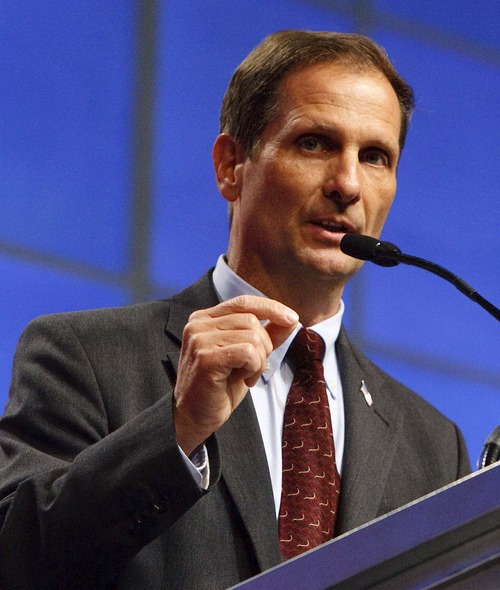This is an archived article that was published on sltrib.com in 2013, and information in the article may be outdated. It is provided only for personal research purposes and may not be reprinted.
As the newly appointed chairman on the House Sub-Committee on the Environment, I have been given oversight over scientific issues regarding environmental policy. None of the issues before my committee is more controversial than global warming, more recently referred to as climate change.
Though this short space will not allow a detailed discussion, it may be helpful to review some of what we know.
First, there is no doubt that climate change is real. But it has always been real. The earth's climate is always in flux, with long-standing patterns of warming and cooling. There is no ideal temperature the earth is trying to achieve.
Second, the science regarding climate change is anything but settled. Indeed, there is wide recognition among climate scientists that none of the 20 primary models used to forecast climate change have proven to be reliable. As recently as last week, The Economist had a feature article examining the uncertainty of the modeling behind global warming, noting that global temperatures had not risen in the past 15 years and calling this fact "among the biggest puzzles in climate science."
In addition, the emotion behind climate change has led to other scientifically questionable claims, some even asserting that events such as "drought, wildfires and storms like Sandy" are the direct result of climate change. Officials at NOAA, NASA and other agencies that are tasked to further our understanding of climate change have repeatedly rejected such outlandish connections.
There is also uncertainty regarding to what degree man is to blame for global warming. However, the claim that 98 percent of scientists agree that humans are the singular driver of climate change has been repeatedly discounted. This oft-cited statistic is based on an online survey with a sample size of only 77 people, and the survey didn't even ask to what degree humans contribute to climate change.
We must also consider the economic cost of suggested remedies. For example, China and India are planning to build a large number of power plants to produce the electrical power that is necessary to lift millions of people out of poverty. Would it be right to deny these people the health benefits and quality of life that would come from having access to affordable power?
Here at home, were we to implement the proposals of radical environmentalists, trillions of dollars of additional costs would be placed upon the backs of hard-working families and retirees living on fixed incomes. And even these extraordinarily expensive measures would have very little impact on global climate change.
Finally, let's consider this political fact. In 2009, despite having control of the entire elected government, President Obama and the Democrats in Washington chose not to pass climate change legislation. And why not? Because even the majority of Democrats recognize that the science regarding climate change is uncertain, the suggested remedies would likely not work, and would be devastating to working families.
As a leader on these important issues, I will work to ensure that we have conducted a thorough scientific review, then use that information to advocate for reasonable policy decisions.
Chris Stewart is a freshman member of Congress representing Utah's 2nd District. A Republican, he is chairman of the Subcommittee on Environment.



